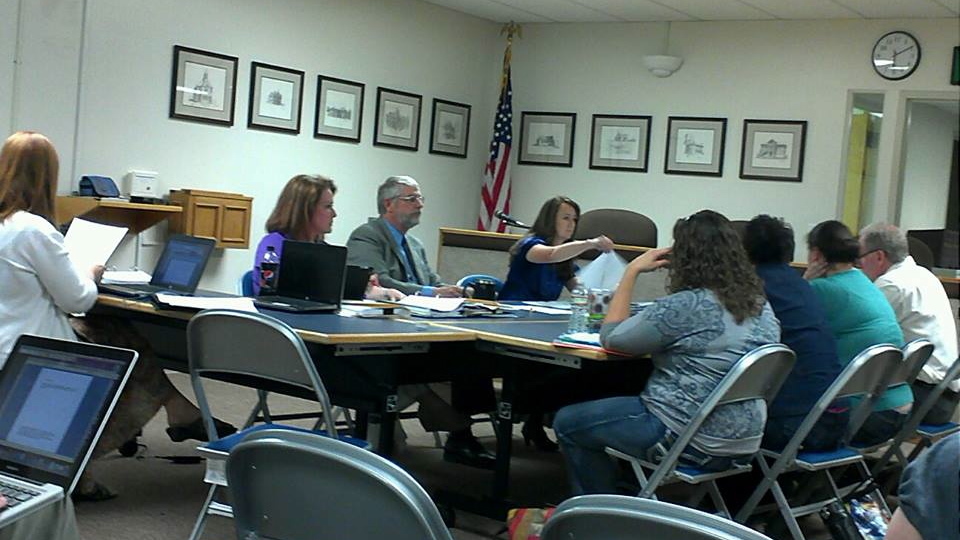Contract negotiations will get under way in Meridian next week — and the state’s largest school district is starting from square one.

On Monday, district and union negotiators got together for a collective bargaining training session. An Idaho Education Association facilitator ran the how-to session. Meridian has held similar training sessions before, but not for several years. “I think they just tried to kind of reset the button,” district spokesman Eric Exline said.
The district understandably wants a fresh start, after the events of a year ago. When the 2012-13 master agreement expired on June 30, the district declared an impasse and imposed its final financial offer, which included bonuses for veteran teachers and some pay raises. A federal mediator was called in, a process delayed by last fall’s federal government shutdown. District and Meridian Education Association negotiators resumed talks on some non-financial issues, but never did arrive at a new agreement, operating instead under the old language.
With the 2014 legislative session completed, contract talks are beginning in earnest across the state. It’s too early to know exactly what to expect, as districts begin working toward a June 30 deadline. Two education stakeholders who keep a keen eye on the process — Idaho School Boards Association executive director Karen Echeverria and Idaho Education Association President Penni Cyr — are only hearing a smattering of reports from their membership.
But both are expecting, or at least hoping for, a smoother process in 2014.
And if that happens — in Meridian and elsewhere — it may be for one simple reason.
Money.
Districts have more of it to bring to the bargaining table.
The 2014-15 K-12 budget gives districts and unions more room to negotiate, but there are limitations:
- The budget puts another $13.9 million of state money into the teacher salary pool, a 1 percent increase. That does not necessarily mean teachers will receive a 1 percent raise. Some districts choose to put more money into teacher pay than the state funds — so the state’s 1 percent raise covers only the share of salaries the state covers.
- A $15.8 million program will allow districts to award leadership “premiums” to teachers. By law, this money cannot be part of the collective bargaining process. But districts have some leeway to figure out where they want to put money: Do they want to reward teachers who take hard-to-fill jobs, for example, or do they want to reward teacher mentors? Echeverria and Cyr both expect to see administrators and unions brainstorm about leadership priorities.
- The state restored $35 million in operational funds that had been slashed during the recession. Districts aren’t all the way back; $82.5 million had been cut. Operational funding typically covers items such as utilities, transportation and health insurance, and Cyr says the $35 million could free up money for salaries. But many districts are bracing for a big increase in health insurance, Echeverria said, which could force some difficult decisions about employee deductibles and out-of-pocket costs.
Here are thumbnail updates from around the state:
Boise. The district held its third negotiation session Wednesday — but under a collective bargaining agreement, district and union officials meet periodically throughout the year. We’re happy with what the Legislature did this year in terms of funding,” spokesman Ryan Hill said this week. “Nothing has been settled, but there are a number of options on the table that should lead to an agreement soon.”
Nampa. Both sides are gathering salary and benefits information, and will hold their third bargaining session on April 22. Last year, Nampa’s negotiations were contentious — and lengthy. The district imposed 14 furlough days in July, later reduced to 13. After negotiating for months on non-financial issues, such as sick leave and class size, a 2013-14 agreement finally went to the School Board for ratification on Feb. 11. A week later, talks began for 2014-15.
Twin Falls. Like Meridian, district and union representatives are opting for training before they start negotiations. Last July, Twin Falls brought in a federal mediator to help broker a deal.
Blaine County. Negotiations will begin May 1.
Pocatello. Negotiations will begin April 16.
Idaho Falls. No start date has been set. Negotiations will probably begin in late April or early May.
VIDEO: Talking teacher negotiations, and more, in this week’s “Making the Grade” segment.
